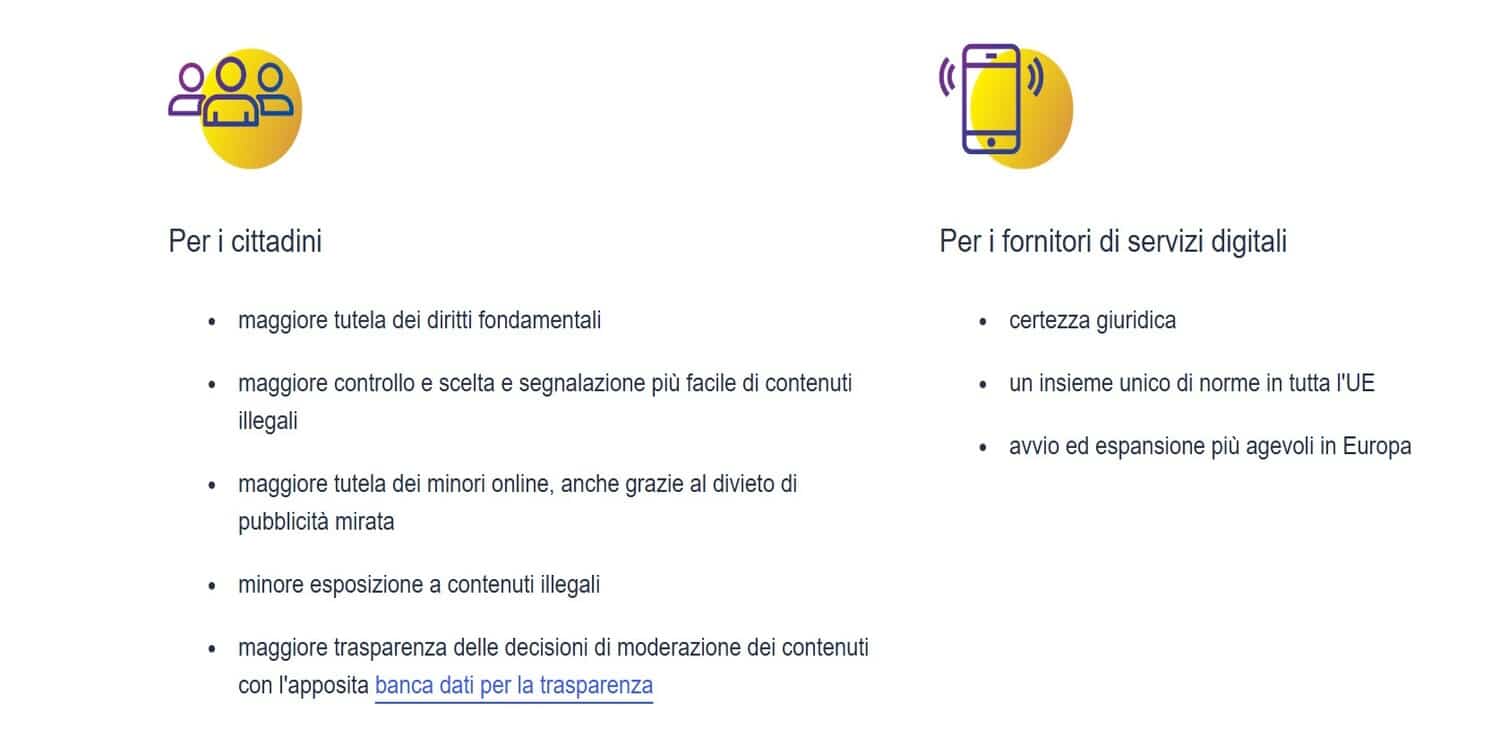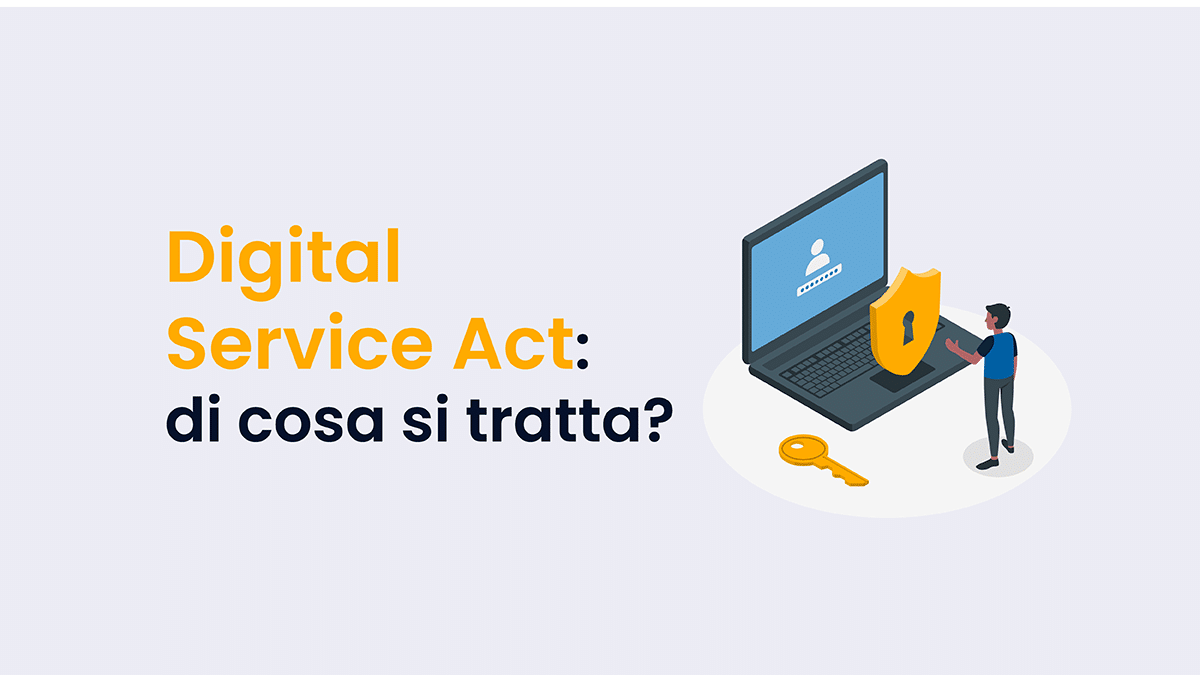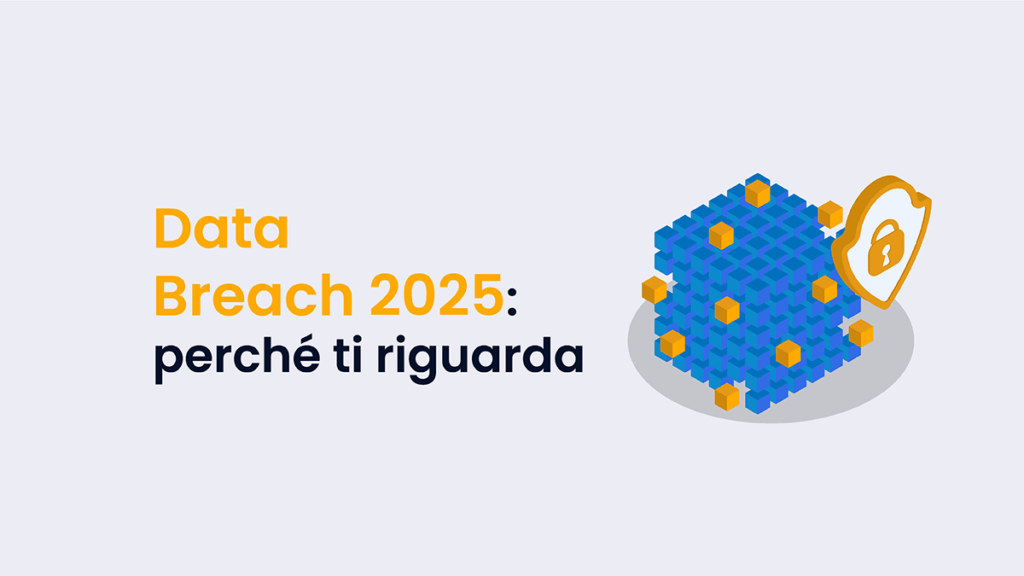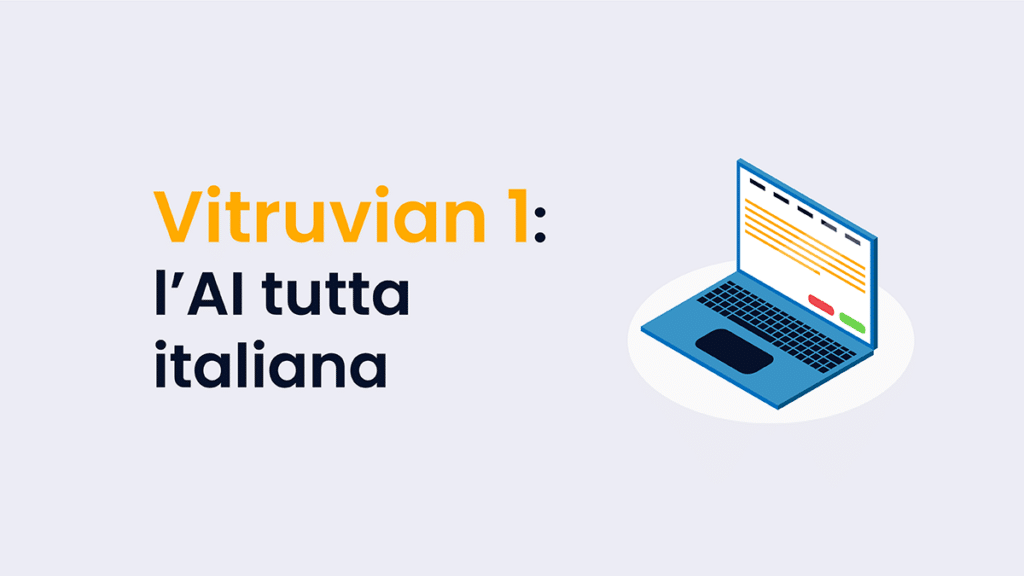Il Digital Service Act è una delle normative più significative degli ultimi anni per quanto riguarda il mondo digitale e l’ecosistema online in Europa.
Approvato dall’Unione Europea nel 2022, il Digital Service Act è entrato in vigore quest’anno.
Quindi se hai un’azienda, un e-commerce o offri servizi attraverso un sito web, ti conviene continuare a leggere. Il Digital Service Act, infatti, ha stabilito nuove regole a cui le piattaforme digitali devono adeguarsi in termini di sicurezza e trasparenza. Questo significa che non solo le grandi piattaforme come i social network o i marketplace, ma anche le piccole e medie imprese con una presenza digitale devono seguire linee guida per evitare sanzioni.
La scadenza era al primo Gennaio, ma oggi (se si agisce rapidamente) ancora ci si può adeguare prima di passare sotto l’occhio dei controlli. Capiamo meglio cos’è il Digital Service Act, cosa richiede e, in pochi minuti, come adeguarsi.
Indice dei contenuti
Cos’è il Digital Service Act e cosa comporta
Il Digital Service Act è una legge dell’Unione Europea. Questa legge introduce regole vincolanti per le piattaforme digitali che operano nel mercato europeo. Il suo scopo principale è quello di regolamentare le responsabilità delle piattaforme in merito ai contenuti generati dagli utenti e alla gestione di beni e servizi offerti online.
Tra i focus c’è:
- l’obbligo di rimuovere rapidamente contenuti illegali,
- misure per limitare la disinformazione
- e trasparenza sui loro algoritmi.
Inoltre, piattaforme molto grandi, come i social network, avranno l’obbligo di fornire rapporti annuali sulla gestione dei rischi legati alla loro attività, inclusi rischi per la salute mentale degli utenti e l’uso improprio dei dati personali.
Infine il Digital Service Act include anche nuove misure per rafforzare la protezione dei consumatori e promuovere la concorrenza leale online.
Qualsiasi attività non conforma rischia multe che possono arrivare fino al 6% del fatturato globale annuale.
Quando sono previste le multe
Oltre a un massimo del 6% del fatturato annuo, ci sono altre misure più lievi proporzionate all’azienda o all’impresa sanzionata. Si è ancora in tempo per agire, quindi intanto osserva i rischi di multa:
- Contenuti illegali non rimossi.
- Mancanza di trasparenza.
- Gestione inadeguata dei rischi per la salute fisica e mentale delle persone.
- Violazioni nel trattamento dei dati personali.

Le prospettive che offre il Digital Service Act e come adeguarsi
Da agenzia digitale possiamo dire che tra intelligenza artificiale, social e la maggiore facilità di creazione di contenuti che si mischiano nel web, la sicurezza e la tutela della persone sono al primo posto.
Certo, si è ancora indietro su una regolarizzazione universale… ma interventi come il Digital Service Act fanno la loro parte.
Nonostante sia entrato in vigore solo a Gennaio 2024, molte aziende e imprese ancora non sono a norma e neanche lo conoscono.
Clicca qui per visitare la pagina del Regolamento sui Servizi Digitali della Commissione Europea.










